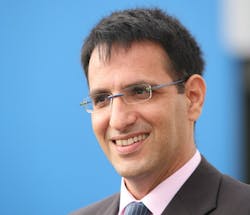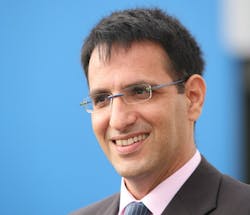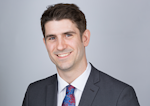Although reverse osmosis (RO) membranes have developed to provide nearly 60% of worldwide desalinated water, there remains a large demand for thermal processes despite predictions the technology use will shrink, an industry expert has said.
In an exclusive interview with WWi magazine, IDE Technologies CEO and president Avshalom Felber said: âFirstly, people have been talking about thermal desalination disappearing for many years and it hasnât yet. While itâs diminishing all the time, there is still a place for thermal solutions.â
IDE Technologies CEO said the company has invested more into its R&D division for thermal than RO desalination over the years.
Thermal desalination processes such as MSF (multi-stage flash) and MED (multiple effect distillation) have in the past provided the majority of potable water in regions such as the Middle East, where excess heat from power plants is used to heat and desalinate seawater.
Avshalom Felber, CEO of IDE Technologies, told WWi magazine that thermal desalination processes still have a lot of potential
Although thermal processes have been viewed as more robust in such regions, the decreasing cost of membranes has meant that seawater reverse osmosis (SWRO) processes have gained traction. Yet, outside of the Middle East, an ongoing discussion is whether RO processes will eventually fully replace thermal alternatives.
The International Desalination Associationâs (IDA) State of the Nation report in 2011 showed that out of the global 66.48 million m³/day installed capacity, RO accounts for 59.85%. MED and MSF meanwhile account for 8.20% and 25.99%, respectively.
IDE Technologies provides both processes. For SWRO, it has references at Hadera (127 million m³/year) and Ashkelon (118 million m³/year) in Israel, as well as Larnaca in Cyprus (21.5 million m³/year) and Sorek to be completed by the end of 2013.
For thermal, in 2010 the SDIC Tiajin Electric Generation Plant commissioned IDE Technologies for the Engineering, Procurement and Construction services for Chinaâs largest thermal desalination plant. The 200,000 m³/day MED is designed with an ultimate capacity of 400,000 m³/day.
IDE Technologiesâ CEO said it is in difficult to treat waters where thermal desalinationâs future lies.
âThere will still be a place for thermal because firstly thereâs progress in thermal all the time and secondly because some waters will always be better to treat or at least partially treat, with a thermal process because of the cost of preparing them for the RO,â he said.
âAs this can be very complex and intense in order for the water to eventually meet the membranes â itâs sometimes easier to treat with thermal. And also, where thereâs waste heat and thereâs really nothing to do with it, then thermal can get its heat for free.â
The IDAâs report said that there would be an âincrease in hybrid plants combining thermal and membrane processesâ.
Felber added: âI would say thereâs a place for hybrid solutions that combine the advantage of both technologies. I wouldnât say that robustness is the only advantage you can get from thermal, as RO is getting more and more robust and itâs just a standard of operation that would allow you to work well or not.â
###
- The full interview with IDE Technologies CEO Avshalom Felber will appear in the June-July issue of WWi magazine. To sign up for your free copy, please click here.





